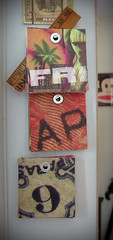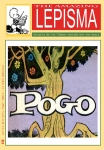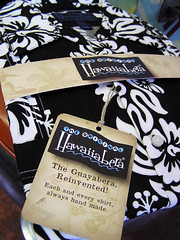Ok - it's cold and almost raining and I'm getting in my car and on my way into the studio. This kind of weather always reminds me of my art school days in Boston where I'd have my Walkman qued for my brisk 20 minute walk to class from Park Drive to Mass Art. I still have the two cassettes I made specifically for walking around Bean Town - one for nice days, the other for not so nice days. Nice day toons are mostly songs from my younger, late 70's Spring Break compilations that range from Joe King Carrasco's "Baby Let's Go To Mexico", The Beach Boys "Surfin'" to Van Halen's "Beautiful Girls." The not so nice day mix consist of the new stuff, 1987 and beyond stuff I discovered via WFNX, WBCN, friends I met while working on Lansdowne Street and in the know school chums - Pixie's "Gouge Away", The Wedding Present's "Brass Neck", Treat Her Right's 'I Think She Likes Me", and some Sleep Chamber stuff I'm dying to get in digital form, among others. Today, those tapes are in the form of Playlists on my iPod and they still serve the exact same purpose of being the on-demand soundtrack to my so called life. Meanwhile, I've got a few friends that are all over this new portible satellite radio idea. The same freinds that tell me "I used to have that album..." (Of course, they sold all those albums long ago). While it is a cool idea and a nice change from the bland Clear Channel broadcasts, for anal music freaks like me, it's got a long way to go before it'll replace my iPod. It would be rather sweet if I could access my 200 GB+ Audio Vault with one of these new radios, but I really don't see that happening any time soon. Anyway - Eliot Van Buskirk, CNET's mp3 insider seems to be on the same, Close, but no cigar, page:
In the early days of digital music, we optimists looked forward to the day when we'd have instant access to every song ever recorded from a wireless, portable device--called the "celestial jukebox."
Since then, just about every step forward in digital music--MP3 players, online music stores, P2P, ring tones and so on--has led us toward this vision.
Last month, XM and Delphi took us even closer to the celestial jukebox with the release of the Delphi XM MyFi, the world's first handheld satellite radio receiver.
The phrase "never say never" became a cliche because it's often good advice. But when you're talking about technology, it's practically an axiom, especially if you're a tech executive addressing the press.
There is one place satellite radio makes sense to me: the car.
To wit: I attended the first XM announcement at the 2001 Consumer Electronics Show, where the company unveiled the Delphi XM SkyFi Radio. It consists of a small receiver module that can be swapped between a boom box, home and car kit but can't be used on its own.
As CNET's portable-audio guy, I had only one question for the XM official who made the announcement: When would they make one small enough to fit in my pocket?
The XM exec told everyone at the press conference that handheld satellite radio was impossible, because pulling in the signal took more power than a portable could ever supply. Less than four years later, I have the Delphi XM MyFi sitting right here on my desk. Like they say, never say never.
We are all narrow
Granted, you can't pick any song you want using the MyFi, but the "celestial" part of "celestial jukebox" is in full effect, since the MyFi broadcasts music that's bounced off satellites. But although our national waistline is off the charts, we are all still very narrow in terms of our musical taste. Broadcasting music doesn't work anymore; narrowcasting does.
How am I supposed to know what Ethel sounds like?
I tried time and time again to find something I wanted to listen to on XM's 68 music channels but never found "my" channel. Instead, I ended up listening to stand-up comedy and news. One reason for this is that XM's music channels have names like "Fred" and "Ethel" (seriously). How am I supposed to know what Ethel sounds like?
Another reason I didn't rely on the MyFi for music is that, like most people, I have fairly specific taste in music. Not even the most ingenious programmer could come up with a station that's perfect for me.
Actually, I take that back--I can and have programmed such a station. It's called my iPod, and it has exactly what I want to hear on it.
More like 'WhyFi'
I took the MyFi around San Francisco for a day, testing various environments to see how the reception stacked up. Not so good, it turns out. Here are a few of the places XM's channels turned into a moment of white noise, followed by more than a moment silence (digital signals are either 100 percent there or 100 percent gone):
• The subway
• My living room
• Parts of my hallway
• Most of the CNET Networks headquarters
In addition, it appeared to interfere with my cell phone, so every time I wanted to make a call, I had to turn off the MyFi (this happened only a couple of times, so it admittedly wasn't the most scientific test in the world).
Either the dodgy reception or broad programming would have been enough to make me prefer my MP3 player, but once you add the fact that XM's compression sounds worse than a 128kbps MP3, there's no way I'd switch to XM.
There is one place satellite radio makes sense to me: the car. Highways have an unobstructed line toward the sky, so the reception's perfect. Plus, I'm in more of a mood to troll around programmed channels on a long road trip than I am on a short commute.
I know this for a fact, because I've rented cars with satellite receivers, and it's always worked out great. Factor in Howard Stern's switch to Sirius in 2006, and there's a good chance I'll opt for a satellite receiver in my next car.
As for the portable MyFi receiver, perhaps that XM executive should have stuck with his original thinking and stayed out of the portable market entirely.
Subscribe to:
Post Comments (Atom)




























































No comments:
Post a Comment